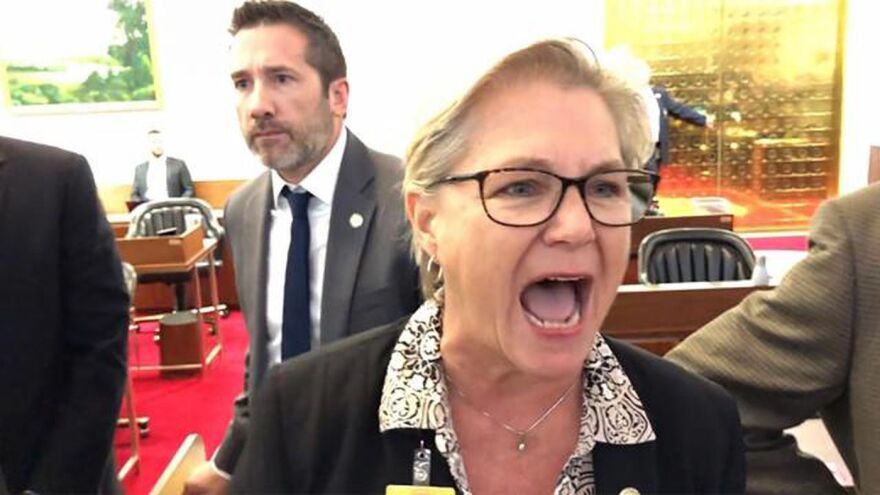The North Carolina General Assembly returns to Raleigh briefly on Tuesday with a short to-do list, topped by another Republican attempt to override Democratic Gov. Roy Cooper’s veto of the budget more than six months ago.
Senate GOP leaders announced on Monday they'll again put a budget veto override on their floor debate calendar.
Republicans only need one Democrat in the chamber to vote to override or two Democrats to be absent to get the necessary supermajority. Neither occurred last fall when Senate Republicans threatened similar votes, and there’s little to indicate the political math has become any easier for the GOP.
While the House rammed through a successful override in September at a moment when dozens of Democrats were absent, the inability of GOP legislators to complete the override and enact their preferred budget became the symbol of the 2019 session. All of Cooper’s vetoes were upheld last year as Democratic leverage improved, thanks to seats gained during the 2018 elections.
Still, Republican Senate leader Phil Berger keeps trying to pitch the positives for Democrats to turn their backs on Cooper, arguing it’ll be the only way for teachers to get significant raises this school year. The vetoed budget also includes money for school construction and local pork projects.
“Democrats have a choice to make. If they want us to have the state move forward with the construction projects that are in the budget, with the teacher pay raise that's in the budget. They can,” Berger told The Associated Press in an interview. “Tell us that they're prepared to vote for the override.”
But Senate Minority Leader Dan Blue of Raleigh said he’s “pretty confident” the chamber’s Democrats will remain united with Cooper, even as a new Democrat gets sworn in Tuesday. Durham County Democrats chose retired 20-term state Rep. Mickey Michaux to fill the term vacated by Sen. Floyd McKissick, who resigned last week to serve at the state Utilities Commission.
Although McKissick and three other Senate Democrats actually voted for the GOP budget in June, the chamber's party caucus have closed ranks since to support Cooper. And Michaux said on Monday that he would “definitely” side with Cooper and sustain the veto.
Cooper and other Democrats oppose the two-year budget written by Republicans because it contained corporate tax cuts and lacked Medicaid expansion. Cooper also proposed average teacher pay increases that are double what the GOP offered.
Cooper wants Republicans to stop trying to override and instead work with him on carving out a better, separate pay plan for teachers and other school personnel. Berger has said that's not going to happen.
“I hope that the veto will hold," Cooper told reporters last week. "But I also hope that the Republican legislature will take us up on our offer to negotiate a compromise.”
While a vetoed budget means many GOP conservative policies have been blocked, state government continues to operate. Lawmakers spent the summer and fall passing several stand-alone spending bills for many key agencies, and Cooper signed nearly all into law.
Republicans point out that Cooper vetoed one such bill that would have given teachers the average 3.9% raises contained in the blocked budget. Senate Republicans also announced Monday that Tuesday's schedule will include potential override votes for the standalone teacher pay bill and a regulatory measure Cooper also vetoed.
Berger and House Rules Committee Chairman David Lewis said legislation also could pass during the expected one-day session to close a funding shortfall for a college scholarship program for the children of wartime veterans. Lewis said the House also may consider some largely technical tax legislation.
After Tuesday, legislators aren’t likely to meet until at least April, when the chief activity of the “short session” will be to draw up and approve spending alterations for the fiscal year starting July 1.








